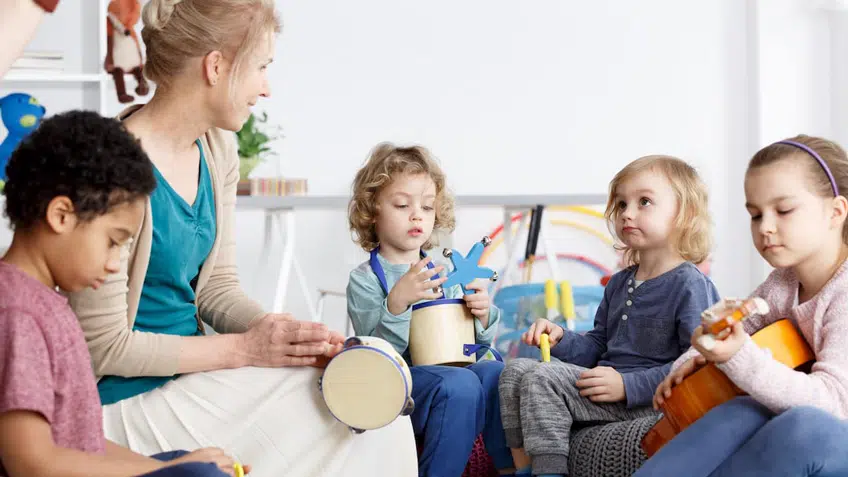Nursery rhymes alone will not maximise the potential brain boosting benefits that music can offer in early years development.

Music helps in Brain Development
Benefits of Nursery Rhymes
At Boogie Mites we love nursery rhymes and traditional songs – the more singing, rhythm and rhyme the better! We all know that nursery rhymes are a valuable part of musical activities in the early years, not least because of the regular repetition of these songs that under 5’s can be exposed to. These traditional rhymes and songs of any culture being sung by family and carers throughout the early months and up to 5 years in the home, at toddler groups and in the nursery, provide the repetition that will have a positive effect at this time when brain plasticity is at its greatest. Lullabies, nursery rhymes and traditional songs of every culture carry a special ‘signature’ of melodies and inflections of a mother tongue which helps to prepare your babies ear, voice, and brain for language. Regular opportunities to hear these songs and rhymes will help support the development of auditory processing skills and matching syllable beat patterns to language, all of which are known to support strong reading and writing skills. Indeed a research study showed that children who know 8 or more nursery rhymes by heart by the age of four years will be the better readers and writers by age 8 than those who don’t.
Why Nursery Rhymes are not enough?
However, we should not think that nursery rhymes and traditional songs provide all the benefits that music can bring to early years development. They provide a valuable element but there is so much more than children can do with, and get from different types of music making opportunities in early years. Neuroscience studies provide evidence that given the opportunity of regular varied and creative music provision, children in early years can develop the neural pathways that provide strong foundations not only for literacy and maths but for learning generally. Pretty amazing.
Music can help prepare the brain for laying the foundations for literacy and maths
The 3 most important aims for music making that we can put into place to maximize the benefits for brain development – preparing the brain for learning generally and specifically foundations for literacy and maths are:
FEELING THE BEAT
Developing rhythmic awareness
As soon as children are able to move, clap, grasp sticks or shakers to keep the beat, they can learn to
LISTENING AND SINGING
Developing pitch and melodic awareness
Listening to musical arrangements from birth help to develop
PLAYING WITH WORDS
Developing phonological awareness
Playing with words through musical activities can further support this aim. Such as tapping syllables of words or phoneme sounds
At Boogie
Along with traditional nursery rhymes, Boogie Mites music programmes will provide practitioners and parents with a resource that they can use to


